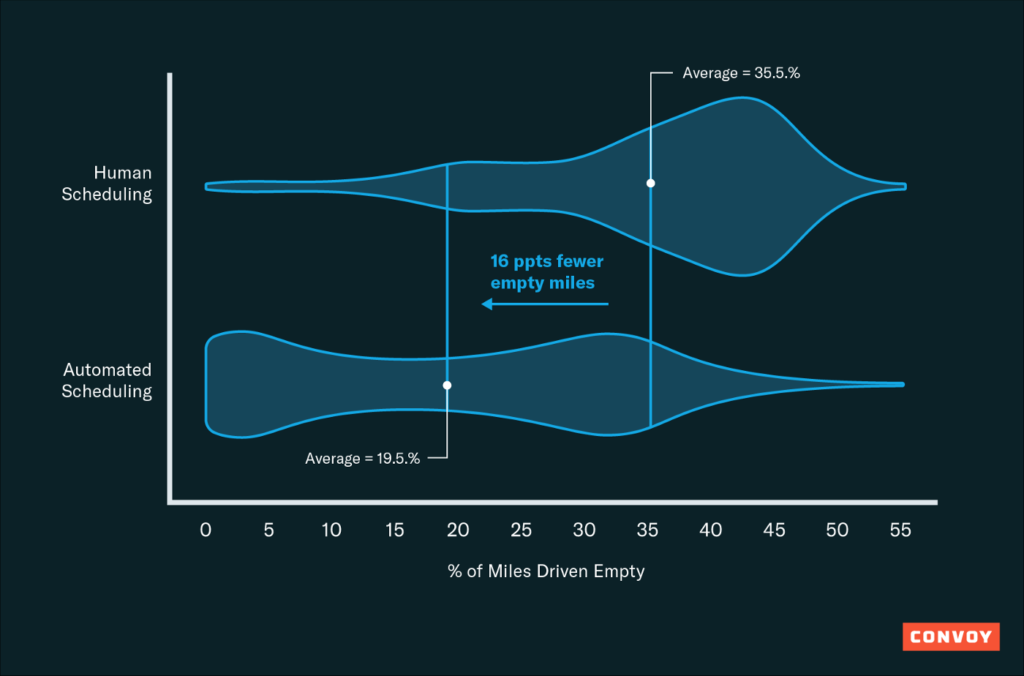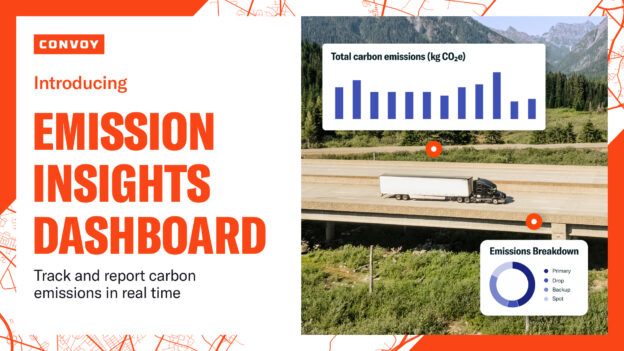The problem with deadhead miles, in less than 500 words
Sustainability • Published on August 15, 2020
Deadhead miles, in my industry, are unfortunately not the amount of travel that rabid followers of the Grateful Dead (Called DeadHeads) accumulate when caravanning with their favorite band from concert to concert. They are instead an anathema of annoying inefficiency and waste.
Deadhead miles, also known as “empty miles”, describes the situation of a truck that is returning back to home base empty after delivering their cargo. This can be a local trip back home or one that crosses the entire country. In fact, Convoy research revealed that 35% of the time, trucks are driving the road empty. It’s not good for the truck owner, it’s not good for the economy, and it’s not good for the environment. Empty miles, just like empty calories, are nothing that anyone wants.

Empty miles for a truck driver means that they are running their equipment without actively getting paid for it or utilizing the chance to move cargo at that time. Adding on wear and tear, depreciation of their equipment, paying for fuel and tires just to get back home empty is a lost opportunity for additional revenue. Their wheels are turning, but they aren’t making any billable income for that time and miles. It’s bad for the economy because of its longer-term ramifications.
The trucks not only suffer wear and tear themselves, but they also create strains on the longevity of the roads and infrastructure on which they travel. Road repairs are expensive in both time and money, and our national crumbling infrastructure is a can that has been kicked down the road for far too long.
Finally, heavy-duty full truckload freight accounts for more than 205 million metric tons of CO2 emissions per year. Today, 72 million metric tons of CO2 equivalent emissions are the result of empty miles. Convoy’s technology already is making progress in reducing carbon emissions by enhancing the ability to connect shipments more effectively. Convoy’s automated reload program reduces empty miles from the industry standard of 35% to 19% by bundling shipments into a single job for a driver. If the industry as a whole is able to achieve the same efficiency improvements that Convoy has seen on our bundled shipments, it would reduce CO2 emissions by 32 million metric tons.
The more we can reduce deadhead miles, the more we can help carriers be more profitable, shippers more efficient, and keep the environment cleaner. Eliminating the waste that is inherent in deadhead miles is a core tenant of ours, and also in our mission statement – “Transporting the world with endless capacity and zero waste”. In this crazy year of 2020 and beyond, it’s our wish that the only deadhead miles talked about in the future means that concerts are back in full swing and those fans are enjoying themselves. We work every day to make that a reality, and as the Grateful Dead said, “Just keep truckin’ on”.



